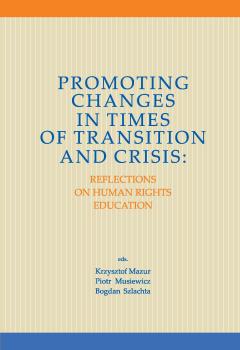Human Rights in the Education System During the System Transformation in Poland .......... 59
Streszczenie
The systemic changes envisioned in the Round Table provisions, perceived as nec-essary prerequisites for the transition from the communist system to a democratic rule of law, required a new model of civic education, with human rights as its indispensable component. Yet already earlier, the banner slogans of the Polish opposition movement called for a restoration of normal relations between the individual and the state. However, the obligation to reform the old system of education, taken by the Polish authorities after the 1989 turnover, has not been implemented until now. So far, the striking features of the governments’ efforts to improve the situation in the field of human rights education have been superficiality and mediocrity. Some systemic changes must be introduced immedi-ately, while others, especially those aiming at raising the society’s human rights aware-ness, should become part of the long-term educational strategy. Human rights ought to be included in university curricula to provide graduates with an in-depth knowledge in this area. Unfortunately, at present university students may acquire, at best, only a very frag-mentary knowledge on human rights. In many universities, human rights are not taught at all. In state schools, in turn, the number of hours devoted to human rights education, although always insufficient, has been recently reduced. What is more, the qualifications of teachers who conduct classes on human rights in Polish schools leave much to be desired and the relevant handbooks are focused on the theory of human rights, leaving aside the practical side of the issue. It is characteristic now that the informal education on human rights is of better quality than that offered in public schools and universities. However, the former’s possibilities are limited, mainly due to financial problems. Not always it is the best organisations that succeed in the race for grants and subsidies. In this context, it is worthwhile to point to valuable educational practices, such as ‘The Contest in the Knowl-edge of Human Rights. Democracy – Human Rights – The Rule of Law’ or The Human Rights School of the Helsinki Foundation for Human Rights in Warsaw. Due to widespread ignorance in the field of human rights, these initiatives are at present unpopular. They are also being incessantly criticised as a new religion. Nevertheless, human rights still remain the relevant answer to numerous questions regarding both the legal and moral dilemma of our times.





